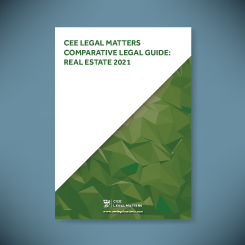Commercial real estate is the third-most-popular investment asset worldwide. Although it is generally professional investors closing the most prominent deals that we hear about, real estate, thanks to its reliability, security, and stable increase in value, is also attracting the attention of non-professional investors.
With its amazing diversity of nationalities, languages, and cultures packed into small, easily traversable borders, Central and Eastern Europe certainly offers tourists a wide assortment of enjoyments. But the many differences in legislation between these countries can make cross-border deals a massive headache without the right legal guidance. Although most of CEE belongs to the EU, which contributes to a certain level of unification of the legal rules, the legal systems of CEE continue to be quite different, especially with regard to real estate.
While you may be able to acquire real estate in around an hour in one country, without the mandatory involvement of third parties (such as share deals in certain countries), that entire process can become much more expensive and lengthier in other countries (such as asset deals with mandatory involvement of a notary public in many other countries). There are jurisdictions with a single reliable land register, accessible online and free of charge (such as the Cadastral Register in the Czech Republic) and countries with two parallel systems which are not easily accessible, if at all. Similar diversity continues to apply with respect to disposals of real estate – in one country the old system of deeds, which are the only proof of an acquired right, continues to prevail, while in other countries this is guaranteed by fully digitalized cadastral registers.
The aim of this guide is to offer at least basic guidance to both professional and non-professional investors considering investing in real estate in the region. As a result, this guide focuses only on selected topics that we believe are of the utmost interest to investors in real estate and does not address them as a whole.
We believe that you will find the information presented in this guide useful, albeit somewhat limited. Our goal in writing it is to help you in your path to a successful closing by getting rid of unexpected surprises and unnecessary burdens.




